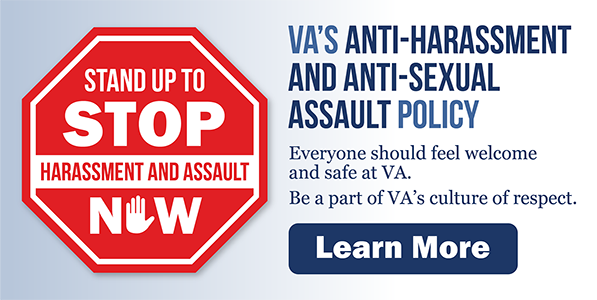Veteran Readiness and Employment (VR&E)
Program Definitions
Program Definitions
In the military, you became familiar with a particular set of terms with specific meanings that were used in specific circumstances. This page of definitions will help you learn the Veteran Readiness and Employment (VR&E) lingo.
Case Manager (CM)
A professional responsible for oversight of all services provided to a program participant. The CM provides direct services in those areas in which he or she has expertise and monitors others that may provide supportive or related services.
Chapter 31
The VR&E program is authorized by Congress under Title 38 of the United States Code, Chapter 31. It is sometimes referred to as the Chapter 31 program. VR&E helps Veterans and Servicemembers with service-connected disabilities and an employment handicap prepare for, obtain, and maintain suitable careers.
Chapter 33
The Post-9/11 GI Bill is authorized by Congress under Title 38 of the United States Code, Chapter 33. The Post-9/11 GI Bill provides financial support for education and housing to people with at least 90 days of continuous service after September 10, 2001, or individuals discharged with a service-connected disability after 30 days of continuous service after September 10, 2001.
Chapter 36
Personalized Career Planning and Guidance (PCPG) provides a wide range of education and career counseling to Veterans, Servicemembers, and eligible family members who are entitled to or participating in a VA education benefit program. These services are authorized by Congress under Title 38 of the United States Code, Chapter 36.
These services help the individual identify a career goal and choose an educational program to reach that goal. Counseling may also be provided to assist the student in overcoming barriers to academic success. Services include:
· Career Choice - understand the best career options for you based on your interests and capabilities
· Benefits Coaching - guidance on the effective use of your VA benefits and/or other resources to achieve your education and career goals
· Personalized Support - academic or adjustment counseling and personalized support to help you remove any barriers to your success
Eligible
A term applied to a Veteran or Servicemember who qualifies for or is entitled to VR&E benefits based on a service-connected disability rating but whose employment handicap has yet to be determined.
Employment Handicap (EH)
An impairment of a Veteran or Servicemember’s ability to prepare for, obtain, or retain employment consistent with his or her abilities, aptitudes, and interests. For Veterans within the 12-year basic period of eligibility and rated at 20 percent or more, a finding of employment handicap results in entitlement to VR&E services.
Entitled
A term applied to a Veteran or Servicemember who meets the criteria to receive VR&E benefits based on a service-connected disability and an employment handicap.
Post-9/11 GI Bill
The Post-9/11 GI Bill provides financial support for education and housing to people with at least 90 days of continuous service after September 10, 2001, or individuals discharged with a service-connected disability after 30 days of continuous service after September 10, 2001. It is authorized by Congress under Title 38 of the United States Code, Chapter 33.
Readiness plan
A written, detailed outline of services provided under the VR&E program. It may include a description of services such as reemployment with a previous employer, rapid access to employment, self-employment, on-the-job training, or independent living services.
Serious employment handicap (SEH)
A significant impairment of a Veteran or Servicemember’s ability to prepare for, obtain, or retain employment consistent with his or her abilities, aptitudes, and interests. The SEH must result in substantial part from a service-connected disability. For Veterans rated at 10 percent and Veterans beyond their 12-year basic period of eligibility, the finding of a SEH is necessary to establish entitlement to VR&E services.
Service-connected disability (SCD)
A disability that resulted from or was aggravated by an injury or illness while the Veteran or Servicemember was serving on active duty in the military.
Suitable employment
Employment that does not aggravate the Veteran or Servicemember’s disabilities, is stable, and is consistent with his or her pattern of abilities, aptitudes, and interests.
Transferrable skills
Reasonably developed skills, knowledge, and abilities attained through training and experience (civilian and military) that relate to current employment opportunities in the labor market.
VetSuccess on Campus (VSOC)
Colleges and universities that partner with VR&E host a Vocational Rehabilitation Counselor, sometimes referred to as a VSOC Counselor. These counselors are available to provide informal career guidance, advice, and information and referral for all student Veterans and Servicemembers. VSOC Counselors are valuable resources to assist student Veterans and Servicemembers in successfully navigating through their academic program.
Veteran Readiness and Employment (VR&E)
(Formerly Vocational Rehabilitation and Employment)
The VR&E program helps Veterans and Servicemembers with service-connected disabilities and an employment handicap prepare for, obtain, and keep suitable jobs. It is authorized by Congress under Title 38 of the United States Code, Chapter 31. It is sometimes referred to as the Chapter 31 program.
Vocational Rehabilitation Counselor (VRC)
A VRC is a professional who provides or coordinates a wide range of services that might include counseling, training, readiness, and employment services.












